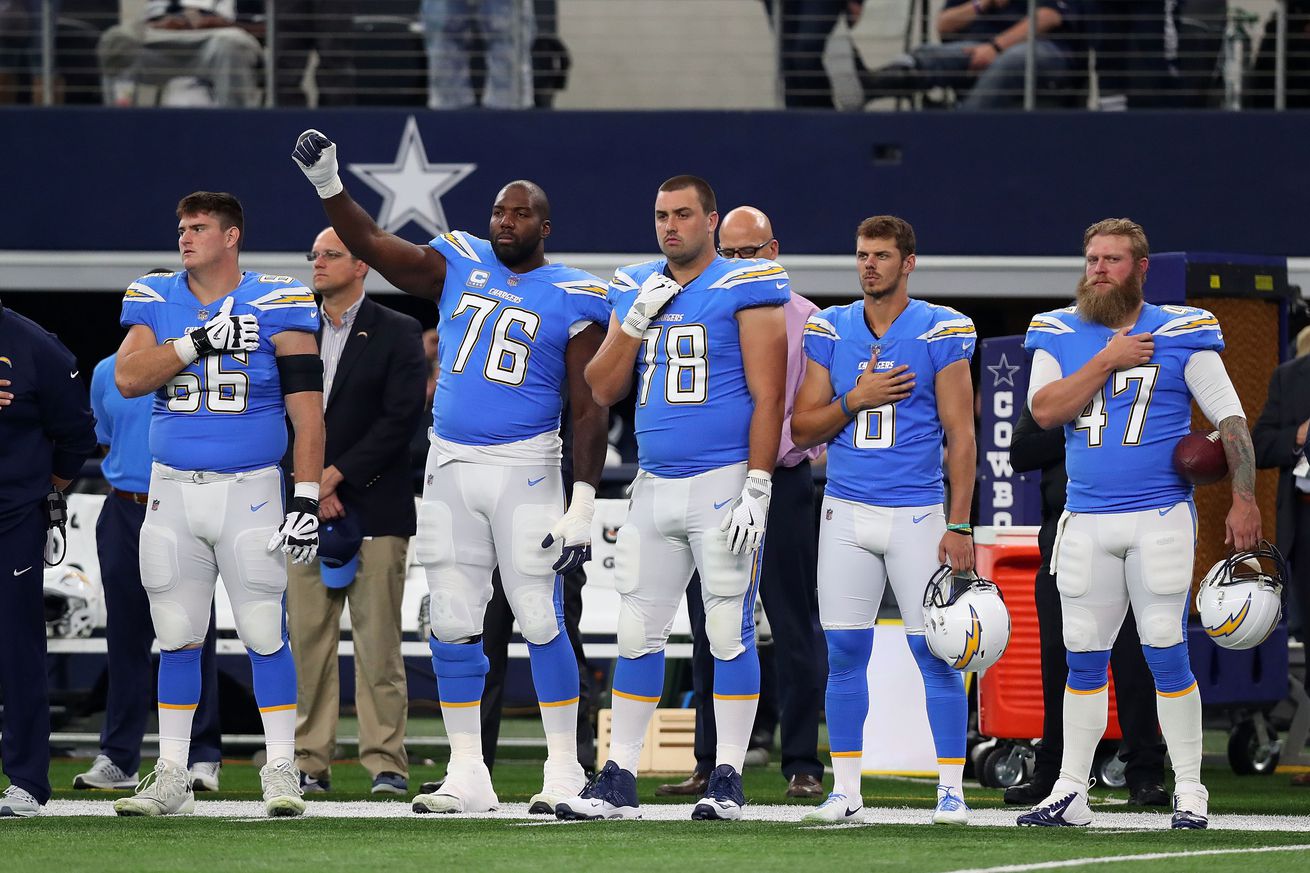
Former Seahawks left tackle Russell Okung knows more about NFL contracts than most players. While he was ridiculed by many (including me) for the contract he negotiated himself and signed with the Broncos in 2016 when leaving Seattle, it still meant that Okung had to research the process and deal directly with owners and executives rather than going through an agent. It’s obvious that Okung — also one of 11 members of the NFL Players Association’s Executive Committee — hasn’t liked what he’s seen regarding the deals agreed to between teams and players.
On Tuesday, Okung went on a long Twitter rant over the unfairness of non-guaranteed contracts which he says (and I don’t see how you could really disagree with him) benefit owners more than they do players. And that the public should really have a better understanding of how the salary cap can “control and restrict the wages of millionaire players.” (I think we could have all agreed on that being true as well.)
(NFL GUARANTEED MONEY THREAD)
I will never understand how billionaire team owners have convinced the public that the players, who put their bodies on the line every week and make less than 50% of league revenue, are the “ungrateful” ones.
— Russell Okung (@RussellOkung) July 3, 2018
I’ll keep going because I’m having so much fun.
Salary caps are one of several mechanisms that serve multi-BILLIONAIRE sports team owners to control and restrict the wages of millionaire players.
— Russell Okung (@RussellOkung) July 3, 2018
Okung is also facing what is essentially the final year of a four-year deal he signed with the LA Chargers two years ago. Make sense?
After agreeing to a one-year deal with Denver in 2016 (the ridicule came over the fact that Okung could basically be released in the preseason and the Broncos would owe him nothing), Okung parlayed a finally-healthy season into a four-year, $52 million with $25 million guaranteed with the Chargers. It made him the highest-paid offensive lineman in the NFL if looking at average annual salary. Except that all Okung really signed was a two-year, $25 million contract with two option years for LA if they decided he was worth it. There’s not a great chance Okung will be “worth it” for both of those season.
Okung received a $12 million signing bonus and had a guaranteed base salary of $3 million in 2017 and $12 million in 2018. As far as the bonus, he gets $10 million for signing ($25 million fully-guaranteed) and $2 million in roster bonuses spread out over four years, so it’s basically an extra $1 million for the first two years but if he’s not on the roster next year, Okung will wind up taking $26 million home. That’s not a bad amount of money for two years, but what if the Chargers were forced to give him a guaranteed salary over the course of the deal, just like they do in MLB and NBA?
It’s an interesting question because it could just mean that LA would only give Okung a two-year deal anyway given the nature of the sport. Kirk Cousins got a fully-guaranteed deal but it only goes for three years. It’s really not as big of a deal as some made it out to be because most franchise quarterbacks will have the first three years of the deal guaranteed; it just means that Cousins is already aware now that if he plays well for the Minnesota Vikings for two years, they’ll probably give him an extension that goes beyond the third. If he doesn’t play well, then he’s just saved the Vikings from going through the official process of releasing him in 2021.
With the Seahawks bringing in J.R. Sweezy for a visit this week and Okung potentially only a year away from being released, it makes you wonder: if guaranteed contracts did exist, would we be mad that we were robbed from seeing Seattle reunite their 2015 offensive line?


